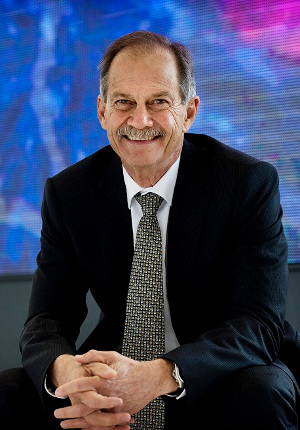WA Chief Scientist honoured
 Western Australia's chief scientist Peter Klinken has been made a Companion of the Order of Australia for his service to medical research and biochemistry.
Western Australia's chief scientist Peter Klinken has been made a Companion of the Order of Australia for his service to medical research and biochemistry.
Professor Klinken was also recognised for promoting science and innovation in WA.
He said the Queen's Birthday honour was very unexpected.
“Gobsmacked to be honest, it was just mind-blowing when I got the information. I had to read the letter several times to actually get it to sink in. It is such an honour,” he said.
“I didn't go into what I'm doing now with the expectation of receiving accolades, but hopefully what I've done has contributed to the good of our society and I'm just blown away by this honour.”
Professor Klinken first became interested in cancer genetics when studying at the National Cancer Institute in the US.
“I spent the vast majority of my scientific career trying to identify these genes that go wrong,” he said.
“Working out why they go wrong and how you can try and fix them up in leukaemias and certain cancers.
“Actually identifying that cells, which were apparently committed to one particular function or one job, could actually change their functions — change their job description, so to speak.
“At that stage, that was unheard of.
“I was able to introduce a couple of genes into these cells and turn them from what were essentially antibody producing cells into macrophages, which are scavenger cells, and that just broke all the dogma at the time.
“I'm particularly proud of the genes that we've discovered that can go wrong in cases of leukaemias and slowly trying to work out, well, how do they go wrong? What are the steps we can take to try and prevent them from causing cancers and leukaemias?”
Professor Klinken has also worked as director of the WA Institute of Medical Research, and the Harry Perkins Institute of Medical Research.
In 2014, he became chief scientist of WA.
“It has been a remarkable opportunity, a rare privilege ... to see the breadth and depth and quality of science in Western Australia and play a small role in trying to shape it and explain it to policymakers ... to get them to value science and innovation and how important it is to the state,” he said.
“And also to spread the word within the community about how science is such an integral part of our life that we sometimes take it for granted.”
He is among nearly 900 Australians to have been recognised for their contributions to the community in this year's Queen's Birthday honours list








 Print
Print